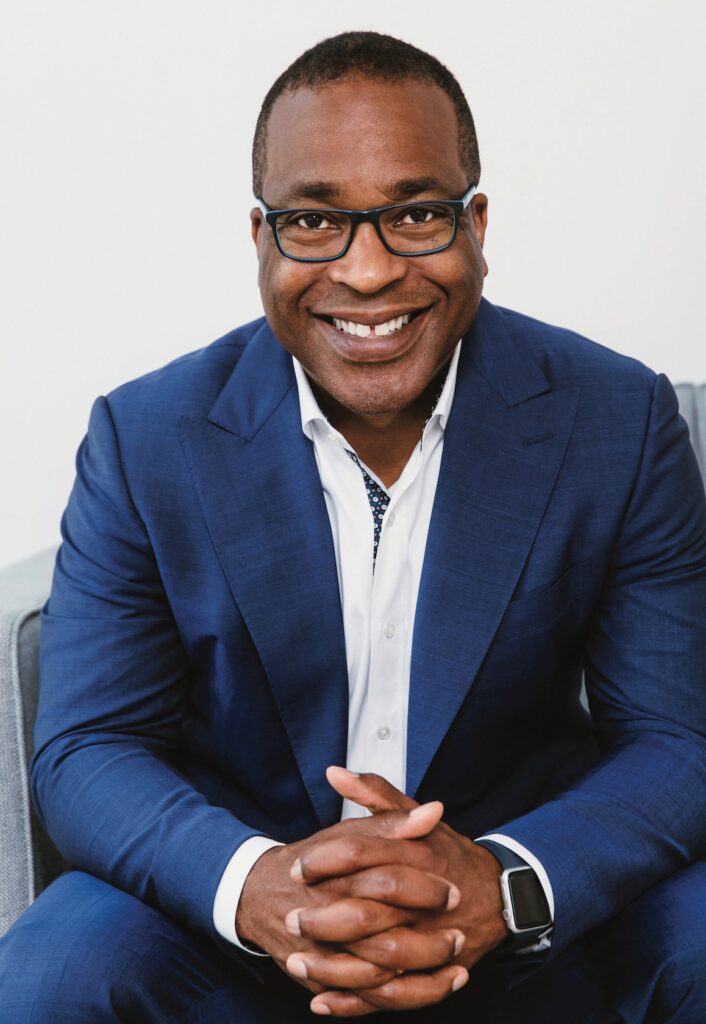RIMS RISKWORLD is just a few days away, kicking off in San Francisco on April 10. This year’s opening keynote will be delivered on Monday by Michael C. Bush, the CEO of Great Place to Work and author of A Great Place to Work for All: Better for Business, Better for People, Better for the World.
Bush recently sat down for an interview on the RIMScast podcast, discussing how the pandemic has redefined satisfaction in the workplace and the critical steps that risk professionals can take to increase equity and happiness in their organization. Download the RIMScast episode for Bush’s full interview and check out a preview of his April 11th keynote below:

What will you discuss in the keynote address at RISKWORLD?
Michael C. Bush: We’re going to talk about making a connection in a way that [makes] people, employees and clients feel they are cared for. Physical and mental health is a top priority now and risk professionals play a role because there is data and policy to consider. But, if you approach it correctly, it can lead to organizational success even during a pandemic or the Great Resignation.
How has the definition of happiness or satisfaction changed against the backdrop of the pandemic?
MB: Prior to the pandemic, we could talk about happiness, satisfaction, engagement and empowerment in one context. COVD has changed that. We were suddenly in a world where people felt like really nobody cared, because they were living a life where there was so much uncertainty. They didn’t know what they needed to do to protect themselves or their family members—physically and financially. This left huge voids because there was economic insecurity on top of it all. People had to watch their communities suffer as small businesses shut down one after another.
Great companies realized this was a time to care. Therefore, they became the one thing that their employees could rely on. In our interviews, we heard stories of companies sending employees necessities like toilet paper during shortages, making deliveries to their parents and other instances that were happening at a personal level. Those lucky employees realized their employers actually cared about them as people and not just as an employee, and that led to happiness. The only silver lining from the pandemic was that humanity has surfaced in a way that has connected us all.
How do you view resilience?
MB: We all have tough days. When a person is under pressure but knows that they have support or someone or an organization that can relieve that pressure and enable them to bounce back, that’s resilience. It can eliminate burnout, but there’s a difference between burnout and being burnt out. And we’re going to discuss that difference at RISKWORLD.
Fans of language and communication—or those looking to sharpen their skills—will find some really strong takeaways from your take on active listening. Now that so many professionals depend on remote capabilities to work, how has your perception of active listening changed or evolved?
MB: I’ve become a more intense believer in active listening, especially over the last couple of years. It’s not just making eye contact and not just me repeating the last thing you said. Listening is really about caring. When you listen to a person in a deep way, it is the ultimate show of respect—and not doing it is equally disrespectful. If all I’m doing is waiting for someone’s mouth to stop moving to grab tidbits of what they said to make my point, that is not listening, that’s just a spring-loaded response.
When it comes to being remote, try to dial in and focus on the person who’s in front of you on the screen. Put down your mobile phone and stop multitasking—chatting, posting and “liking” things on social media.
Listening, in the way I’m talking about, takes practice. It involves emptying your mind and being humble enough to do that and not holding on to your own point of view so tightly. When your mind is open, you start asking questions and learning starts. Through that exchange, something unusual and great happens: people feel safe and will start to say more. You might help someone solve their problem, they might help you, or you might identify a new risk altogether.
